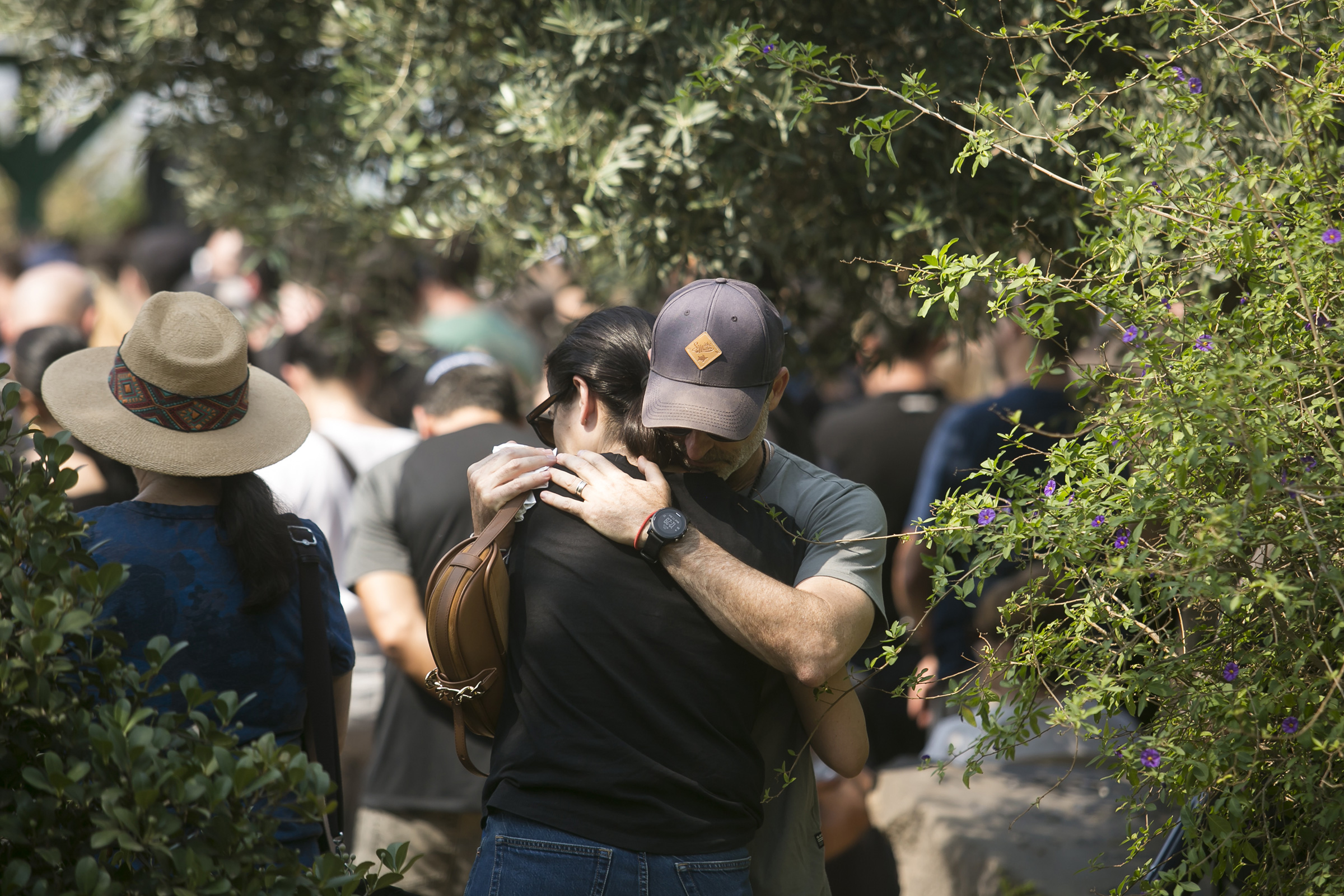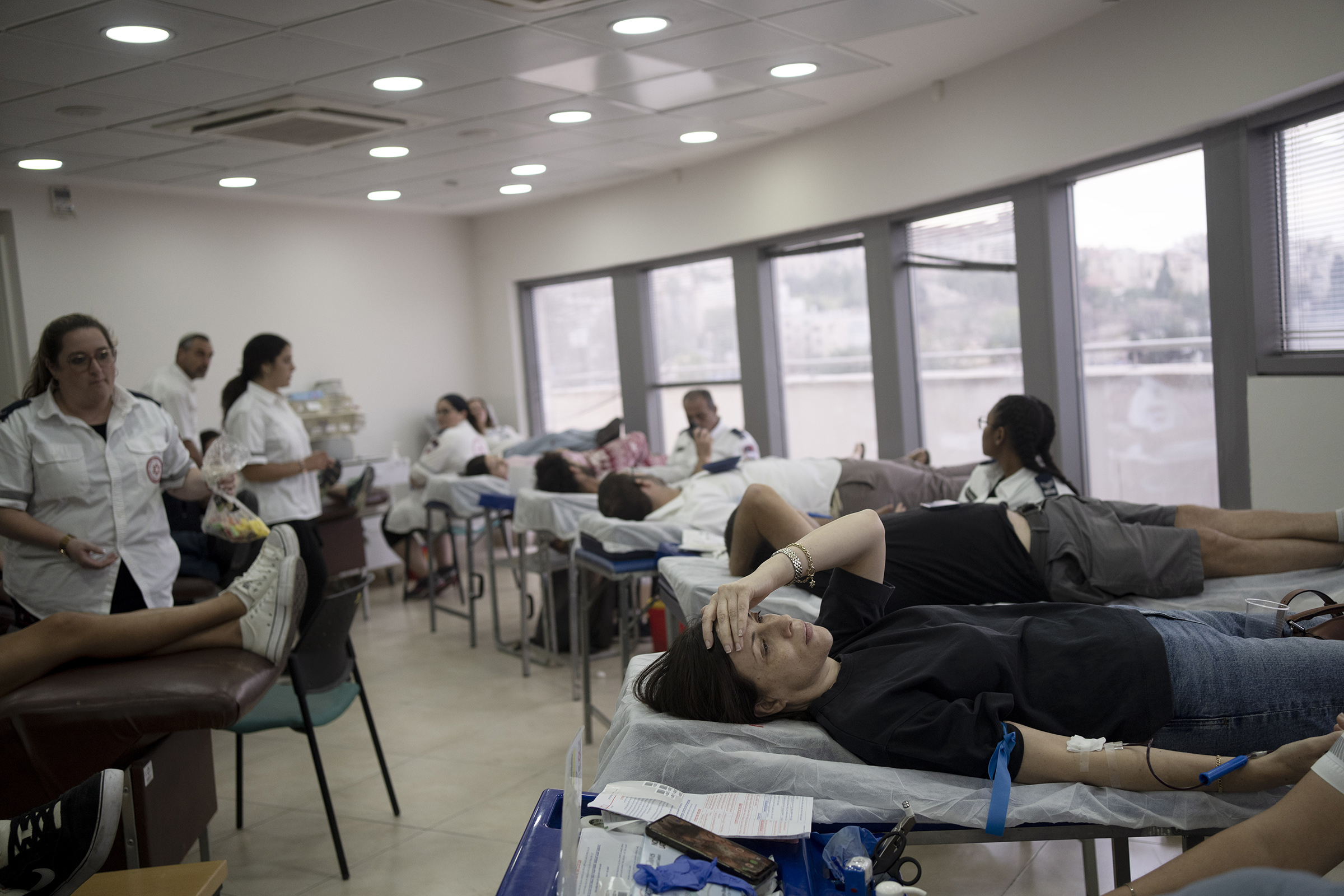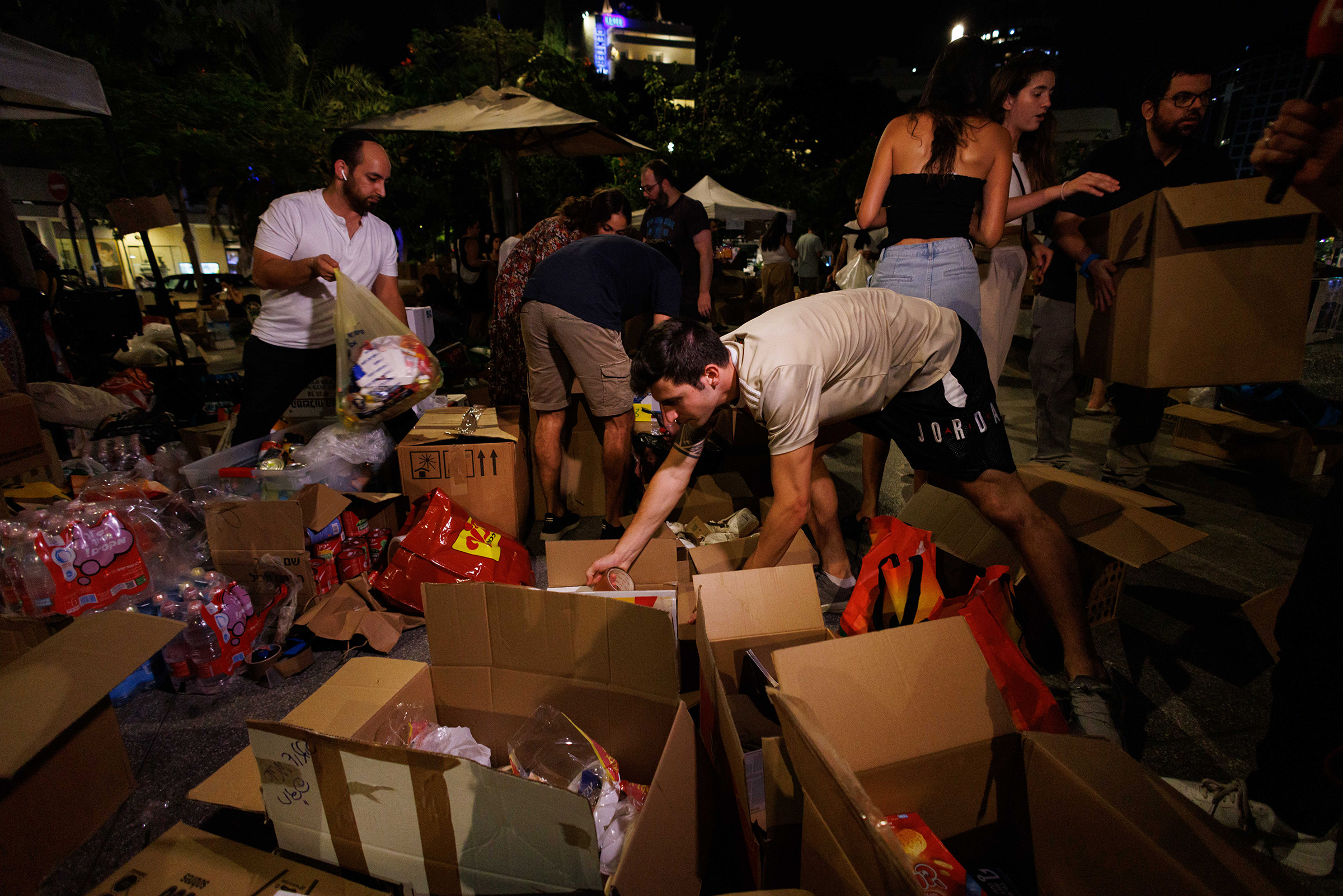
Blessed rains have washed away the interminable heat and dust of summer. In Jerusalem, where I live, the air is wonderfully fresh and the mornings are brisk and chilly. But the streets are unnervingly quiet. Schools have been closed all week. Most cafes and stores have been closed, too, since no one feels much like sipping artisan espresso or shopping, and many of the regulars have been called up for reserve duty.
We sit in our homes, obsessively reading the papers, simultaneously watching social media and trying to avert our eyes from it and avoid the snuff videos that Hamas has jubilantly posted.
Most people aren't sleeping much. WhatsApp groups and other social media remain busy way into the early morning, then suddenly quiet down around dawn, when it seems that all of us fall into fitful sleep for a few hours.
We are living with the realization that every possible horrible thing that we thought could never happen has happened. And it feels like nothing in Israel will ever be the same after Saturday, October 7th, when over a thousand Hamas fighters burst into Israel and gleefully slaughtered more than 1,200 citizens, wounded 3007, and dragged an estimated 150, including breast-feeding infants and infirm elderly, into Gaza.
How could this happen? How could Hamas overcome our military prowess, our much-vaunted intelligence capabilities, our hi-tech fences and sensors? In Hebrew, we are talking about a mechdal, best translated as the failure, or the screw-up. But the English translation doesn't convey the deep horror, sadness, fear, insecurity and, maybe above all, dread that has gripped Israeli society.
Read More: Israel's Darkest Hour Casts a Shadow on the World
Dread that the barrage of missiles in the south will continue. Dread that sporadic missiles will continue to threaten us. Dread that as our forces clear out the destroyed villages in southern Israel, they will find more mutilated corpses, more dead children, whole families executed as they hid in their safe rooms, the reinforced chamber that is a part of every Israeli home.
In a country with less than two degrees of separation, we are full of dread that someone else that we know will be among the dead. We worry for the safety of the mostly-young men and women who have been called up to the reserves. That more people will be hurt in the south by more missiles form Hamas, and in north as Hezbollah continues intermittently fires rockets into Israel—and that Hezbollah will join in in earnest, using its 150,000 rockets to open up another war front, by targeting civilians.
We dread that this nightmare will never end, that we will never be able to heal.

Much of the country has turned into a massive volunteer unit, organized by groups like Brothers and Sisters in Arms, who only last week were vilified by Prime Minister Benjamin Netanyahu when they declared that they would not report for volunteer reserve duty if Netanyahu persists in his anti-democratic judicial overhaul. Those who were called up for reserve duty have reported. The rest have set up a civic infrastructure, organizing transportation and housing for displaced families and collecting necessities such as diapers, women's hygiene products, and socks.
The line in Tel Aviv to donate blood was over half a mile long, and people stood, quietly and patiently, sometimes organizing themselves in rounds of singing to raise their morale. High school students and grandparents are providing baby-sitting services for parents who have been called to the reserves. Mental health professionals are providing psychological and emotional support to victims. Graphic artists have instantaneously designed and uploaded coloring books for the traumatized children. Professionals are offering free massages and yoga and Pilates lessons.
Thousands are opening their homes to people who from the south – and now from the north – who need a respite. Breast milk is being delivered to nursing babies whose mothers are dead or missing.
And everyone seems to be cooking, including celebrity chefs and elegant restaurants. A group calling itself Grilling for the IDF spent a day barbecuing and then delivering the food to soldiers. Some of us are making sure that there is gluten-free food, too.
It's a way to keep busy, to be useful, to try find something positive in the horror.
But even volunteering only helps for a while.
We are reminded of the 1973 Yom Kippur War. Operation Iron Swords, as the new catastrophe is now known, began on October 7th, 50 years and one day after the sudden outbreak of the Yom Kippur War. Like the Yom Kippur War, the Hamas attack fell on us by surprise, on a holiday, on the Sabbath, on a beautiful, seemingly innocent autumn day.
But more people died on October 7th than in the first week of the Yom Kippur War. Indeed, more Jews died on that day than at any time since the Holocaust. Our minds lurch to even deeper, more primal recollections. Kibbutz Beeri, with 1,200 residents, where at least 108 bodies have been found and Kibbutz Nahal Oz, where the number of dead is unknown remind us of the collective memory of the 1903 Kishinev pogrom in Czarist Russia that led poet-laureate H.N. Bialik to write the searing City of Slaughter. The helpless Israeli child terrorized by Gazan youngsters while crying for his mother, posted by with the caption "For the first time, Gazan kids get to see an Israeli child crying for his mother," reminds me of the Boy in the Warsaw Ghetto, his hands held up in terrified surrender. The child was put in a circle of Gazan children who were told to bully and terrorize him while he stood there helpless
Above all, we think about the hostages, knowing that Hamas has made it clear that it will refuse to abide by any international conventions and will not even provide a definitive list of names of the people they have kidnapped or tell their loved ones if they are dead or alive.

Israel was founded, among many other reasons, so that Jews would never again be passive victims, that we could live as a people with at least a modicum of safety, and we are gripped by a deep sense of insecurity.
Our own institutions have failed us. It took the army eight to ten hours to get to the people who were calling their families and even public radio stations from their supposed safe rooms, begging for help and rescue. We know now that the troops deployed on the ground at the time were inadequate because they had been redeployed to the West Bank, that the military had become complacent, and that the government had not been focusing on the real risks.
Our government has abandoned us, too. The Prime Minister has not yet visited any of the victims, and few of his 33-seat government have, either. The Prime Minister has gone on television several times to promise revenge and a putative victory, but has not offered words of comfort or hope. The logistical relief that democratic caring governments are supposed to provide is being provided by civil society.
Israelis are divided about how to respond to the government's obtuse lack of compassion and inadequacy. Some, including many who oppose the government and have been part of the protest movement, are calling for unity, saying now is not the time to deal with political divisiveness. Many are calling for a unity government (as I wrote these words, one was announced). Others are demanding that Netanyahu and his government resign immediately, fearful that this government, composed of messianic extremists, nationalist fundamentalists, and an indicted prime minister who needs the government to stay out of jail, is incapable of dealing with the geopolitical challenges and moral dilemmas that we will face in the coming weeks.
But almost all of us share a sense of horror and a deep need for revenge. I feel like most Americans must have felt after 9/11 or Pearl Harbor. I want Hamas to be wiped out.
But not only for revenge. I believe that Hamas is not a legitimate political entity, but rather a local ISIS or al-Qaeda, opposed to any perspective or existence other than its own. I believe that Hamas must be annihilated so that we, and the Gazans, can live.
Like ISIS and al-Qaeda, Hamas has no regard for the value of human life. They will use their own children as human shields. They will sacrifice their own people to further their fundamentalist goals. And so I don't know how we can wipe out Hamas without killing innocent Gazan citizens.
But then what? After we all bury our dead, and try to rebuild, and try to overcome the pain and the rage—then what?
I am filled with dread because none of the leaders, on either side, have any long-term answers other than hatred and rejection. None of our supposed leaders are capable of suggesting a plan that will allow both our peoples to be safe from evil, safe in our homes, and safe to live our lives as individuals and as people.
More Must-Reads from TIME
- Why Biden Dropped Out
- Ukraine’s Plan to Survive Trump
- The Rise of a New Kind of Parenting Guru
- The Chaos and Commotion of the RNC in Photos
- Why We All Have a Stake in Twisters’ Success
- 8 Eating Habits That Actually Improve Your Sleep
- Welcome to the Noah Lyles Olympics
- Get Our Paris Olympics Newsletter in Your Inbox
Contact us at letters@time.com